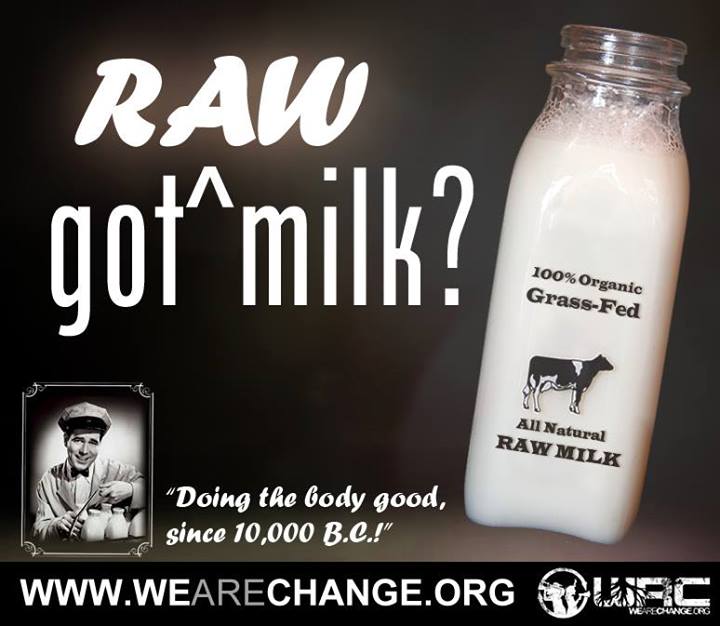The U.S. government’s ever-expanding reach in controlling the lives of Americans has extended to our kitchen table.
Even though human beings have been drinking milk from cows, sheep and goats for centuries, here in America, only 10 states allow the retail sale of raw milk.
Most dairy products in the U.S. must be pasteurized to be sold legally, and even in states that allow the sale of milk in its raw form, federal law says that it can’t be transported over state lines.
Pasteurization is the process of heating fluid foods, and then quickly cooling them in order to kill disease-causing pathogens.
So, what’s the problem? Why do so many raw milk advocates decry the pasteurization of milk?
Maybe a better question is: Why, if humans have been consuming raw milk for centuries, would we need to pasteurize it now?
Identifying the four main pathogens that can be found in raw milk, Dr. Ted Beals breaks down the potential risk to raw milk drinkers. He points out that milk, like all foods, bears a risk of contamination. But, there are ways to prevent the growth of harmful bacteria while keeping intact the good bacteria in milk.
It’s essential for raw milk farmers to put more time and effort into the care, quality of the feed, and milking of their dairy cows because they don’t rely on pasteurization to kill the harmful bacteria.
On the subject of milk and health, Dr. Joseph Mercola explains that the pasteurization process actually kills a large portion of the beneficial bacteria, micronutrients and vitamins found in raw milk. Maybe pasteurizing doesn’t protect us as much as we’d like to think—not to mention the milk-polluting hormones and antibiotics that factory farm cows are injected with.
The nation’s biggest lobbying power in the dairy industry is the International Dairy Food Association (IDFA) with over $1.4 million spent this year. The IDFA openly opposes the legalization of raw milk sales.
Fighting for the freedom to buy and sell fresh milk, are organizations like A Campaign for Real Milk, whose campaign is to legalize the sale of raw milk for all states, the Farm-to-Consumer Legal Defense Fund, which connects small-operation farmers to attorneys and expert advice, even a hotline to call in case of a raid, and legal defense. Mark McAfee, founder of Organic Pastures Dairy, is one of the most well-known and influential dairy farmers in the raw-milk fight—having spoken publicly in fifteen states and three countries on the subject.
Organizations, individual farmers and activists have been instrumental in helping states legalize the sale of raw milk. This year has been particularly busy:
April, 2013 Arkansas HB 1536 Legalizes the sale of raw milk on the farm
Spring, 2013 Massachusetts HB 717 Allows the farmer to sell directly to consumers
May 27th 2013 Michigan MDARD Policy #1.40 allows raw milk through herdshare
April 29th 2013 North Dakota SB 2072 allows raw milk through herdshares
More legislation that is currently up for vote:
Oklahoma HB 1541 if passed will allow the sale of raw milk from producer directly to the consumer.
Texas HB 46 would expand the areas that raw milk can be sold.
Vermont Senate Bill 70 would allow the sale of raw milk at farmers markets.
Wyoming Senate File 112 would allow the sale of raw milk by a producer with a small herd permit.
Farmer’s markets and local dairy farms are also a good place to find those who will help you support the cause through petitions, writing letters to local and state representatives, and “voting with your dollars.”
Short of buying, feeding and caring for your own cow or goat, there are other ways to get raw milk straight from the farm.
Many states allow herd share arrangements, where you’re essentially paying for a share of live stock in a dairy farm. This fee goes towards keeping, feeding and milking your cow or goat. This legal agreement allows you to obtain raw milk, because technically, you bought the cow, not the milk.
Also look into community supported agriculture (CSA) farms in your area. These are a bit more involved, and cost more, but in return you’ll be able to enjoy farm-fresh foods of all kinds, not just dairy. There’s something wholesome about being able to tour the farm(s) where your food comes from and seeing it with your own eyes.
Localharvest.org also provides a great directory to help you navigate.
What are your thoughts about raw vs. pasteurized milk—and do you think federal and state government should be involved at all?
Tyler Roberts
We Are Change












Sign up on lukeunfiltered.com or to check out our store on thebestpoliticalshirts.com.